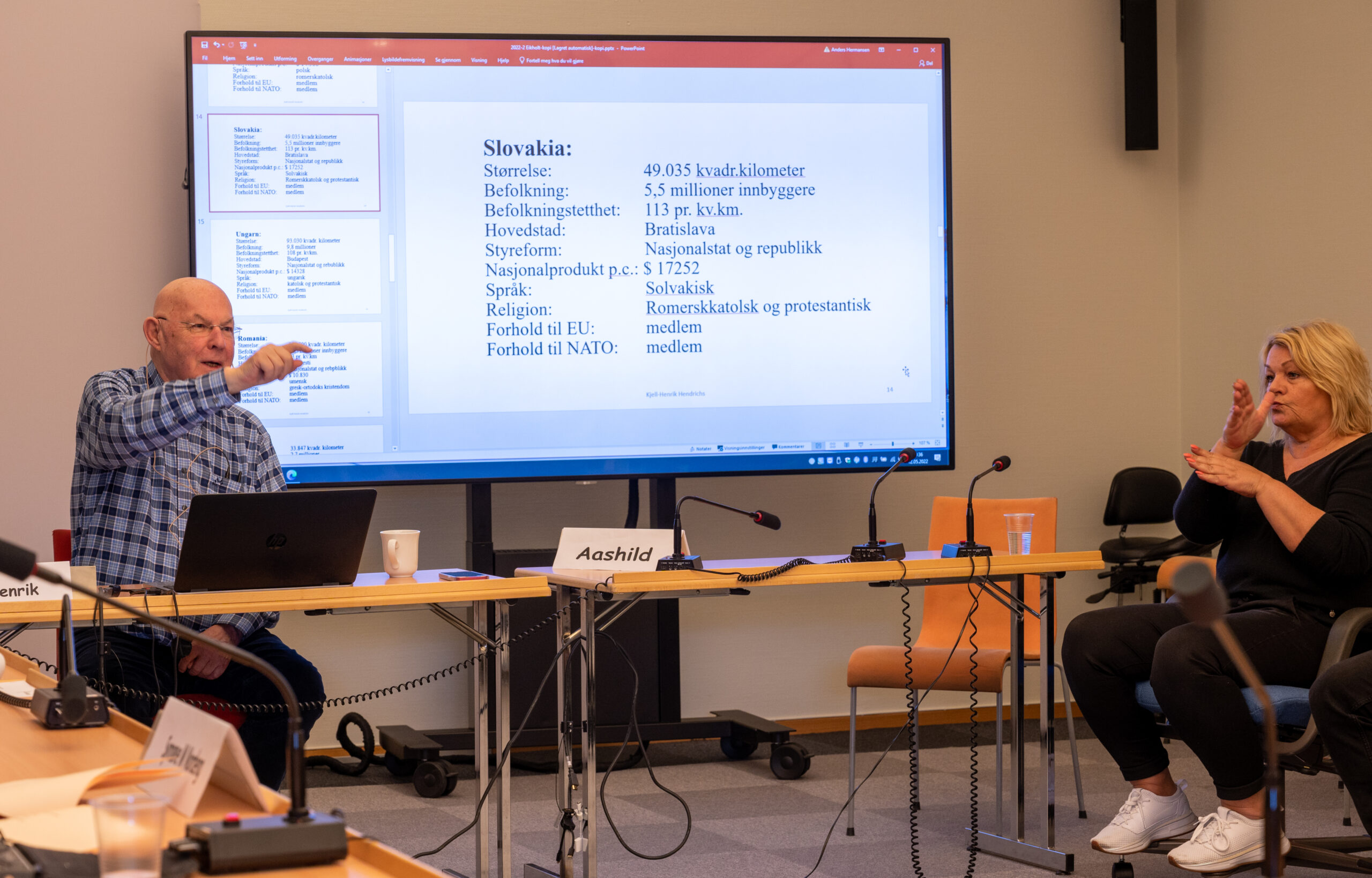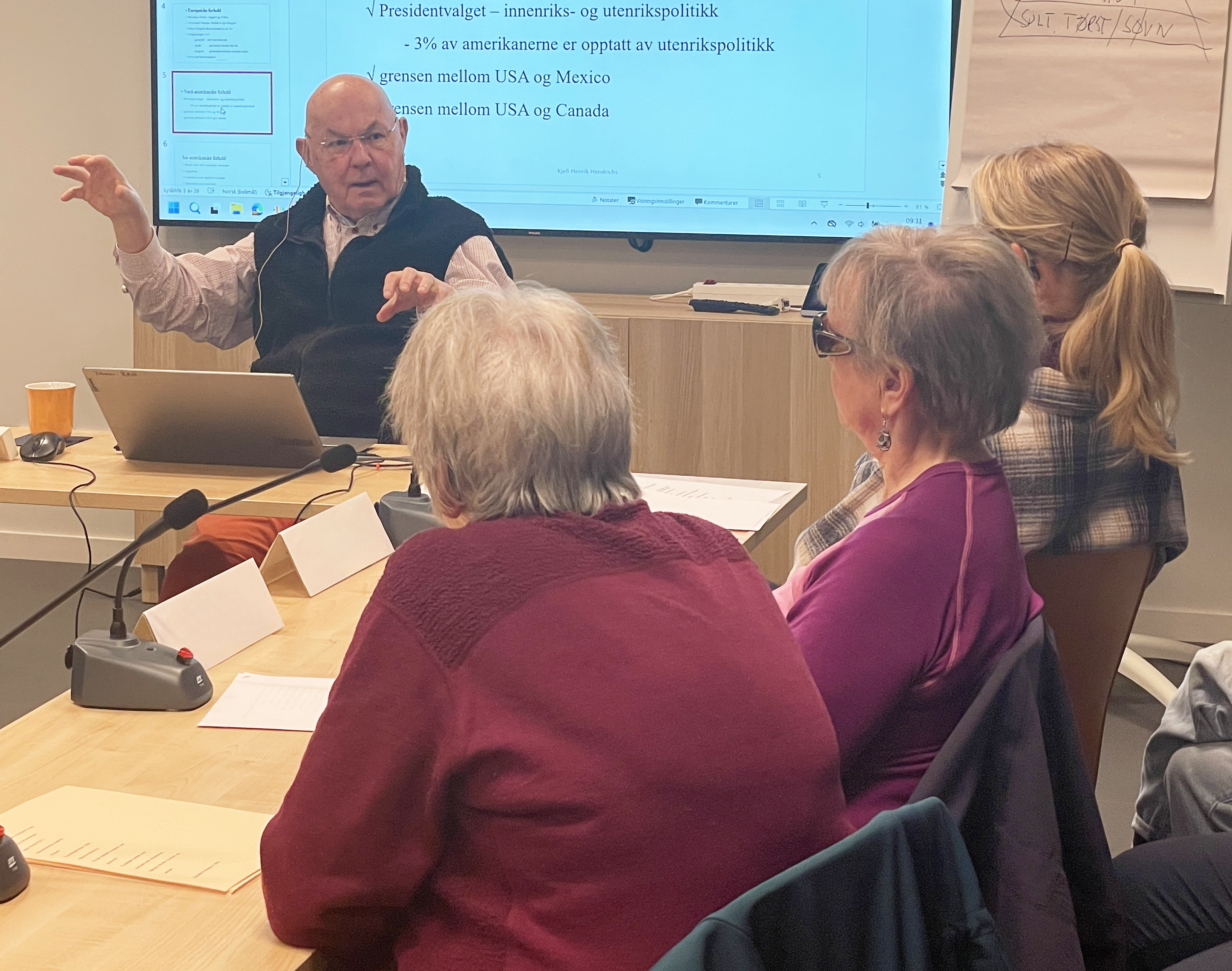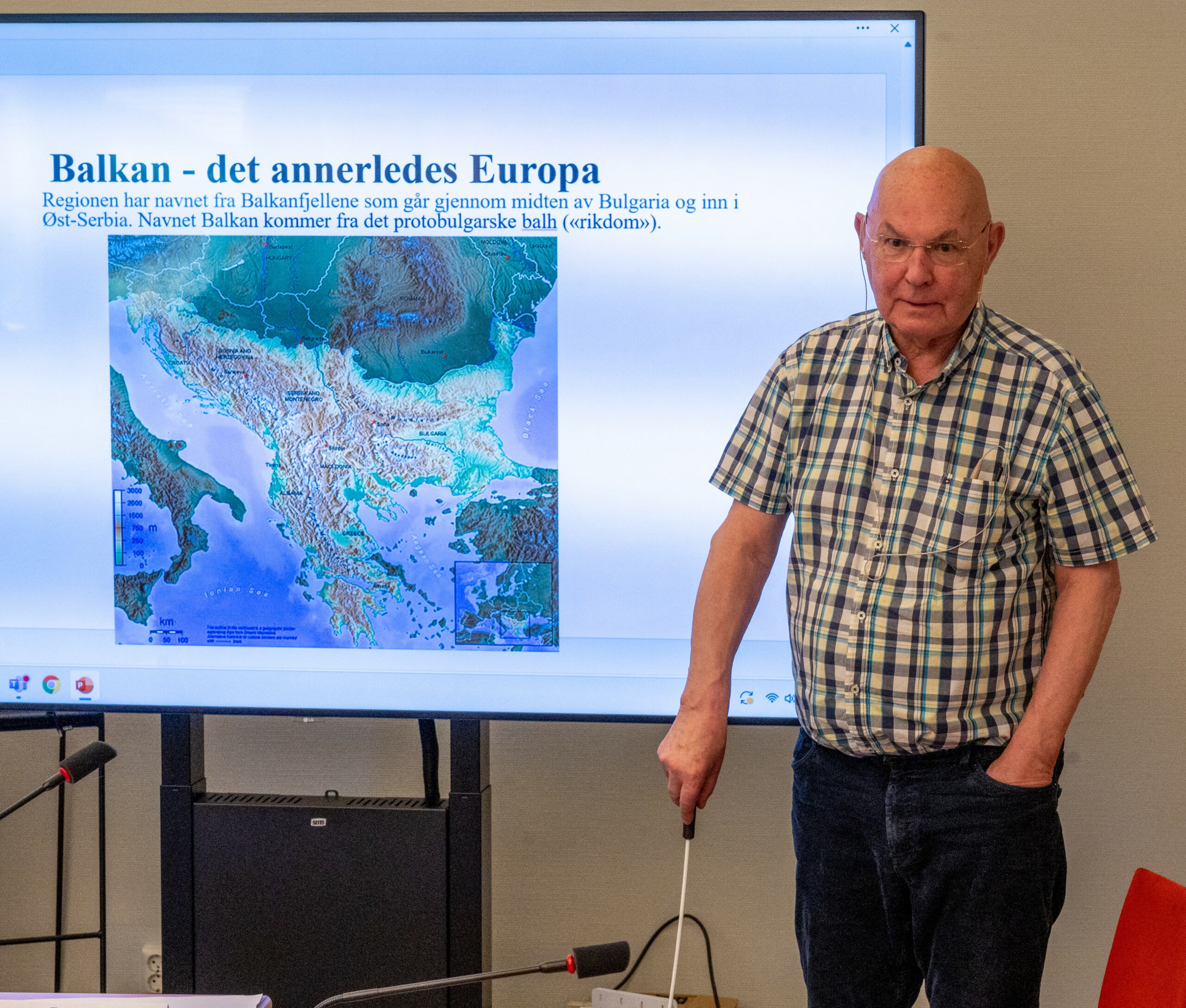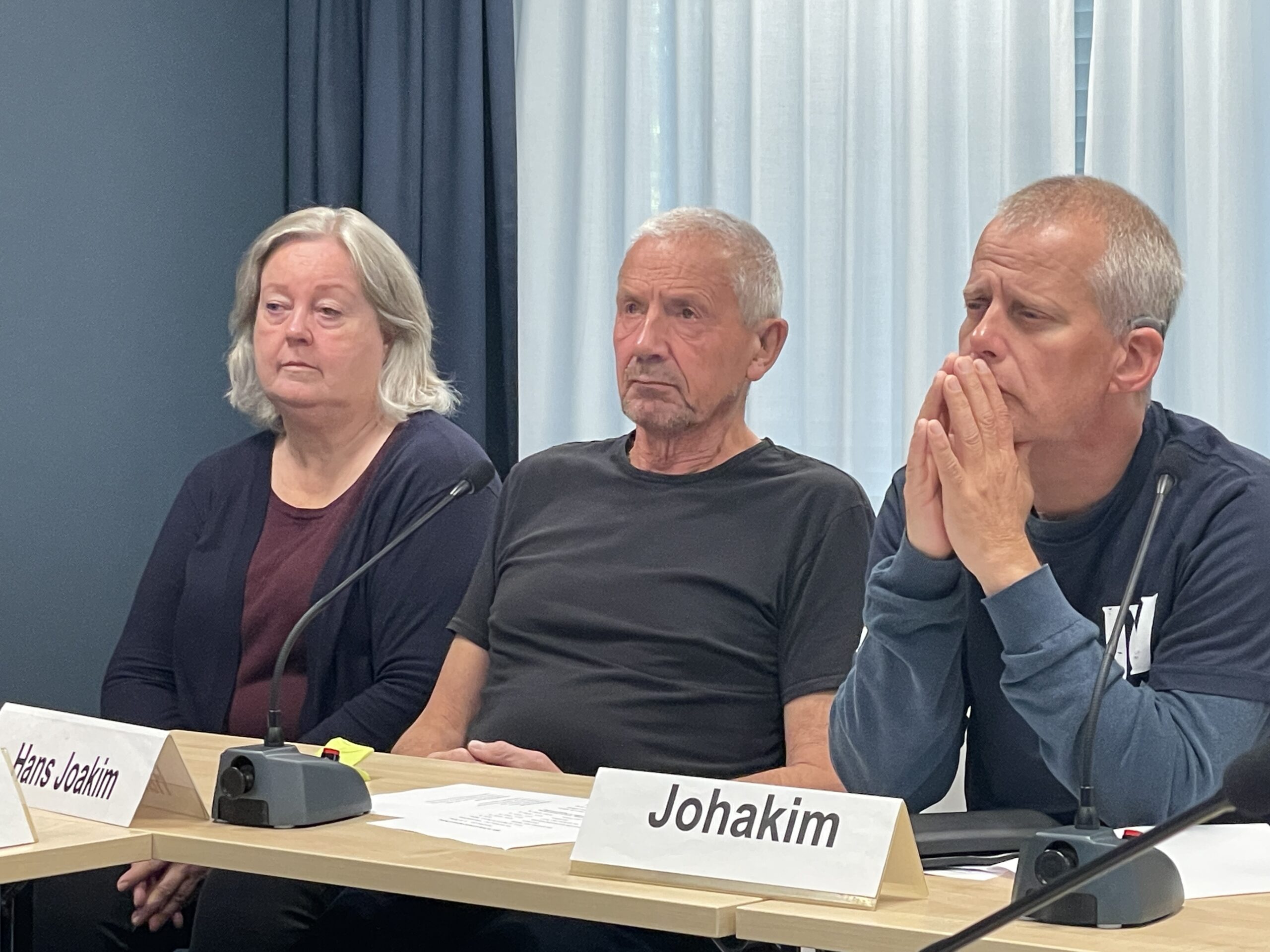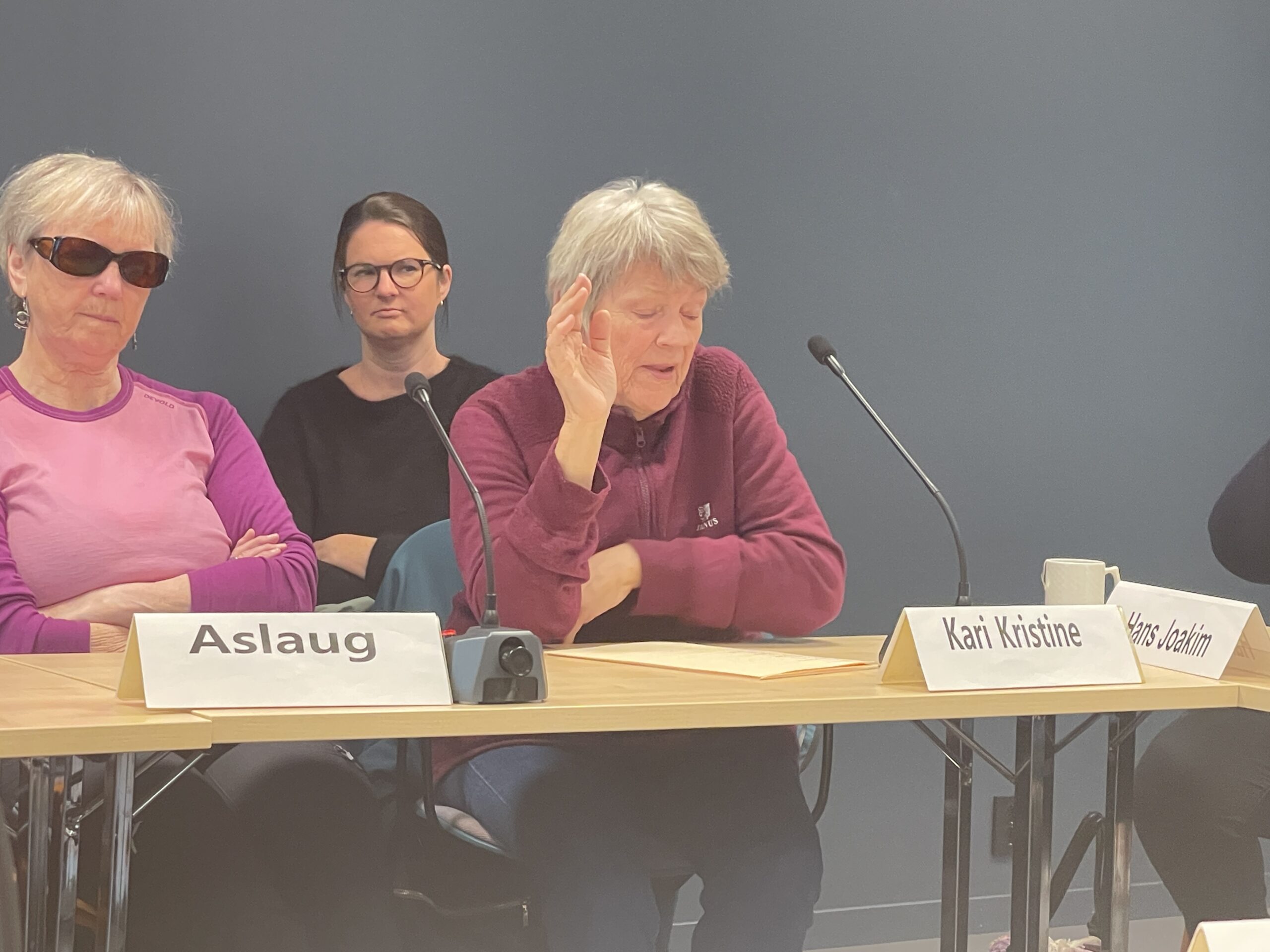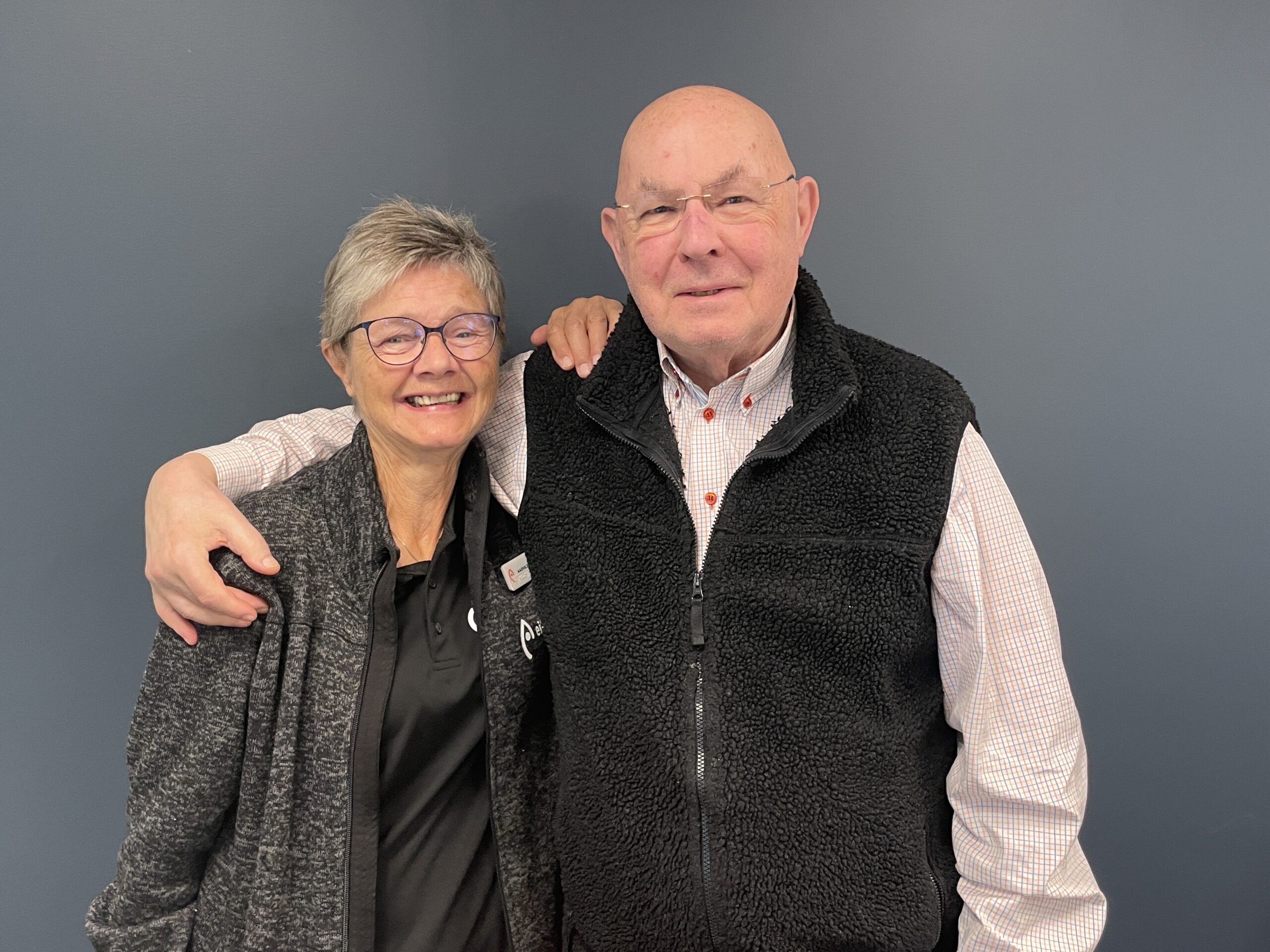Kjell-Henrik - the man in the auditorium
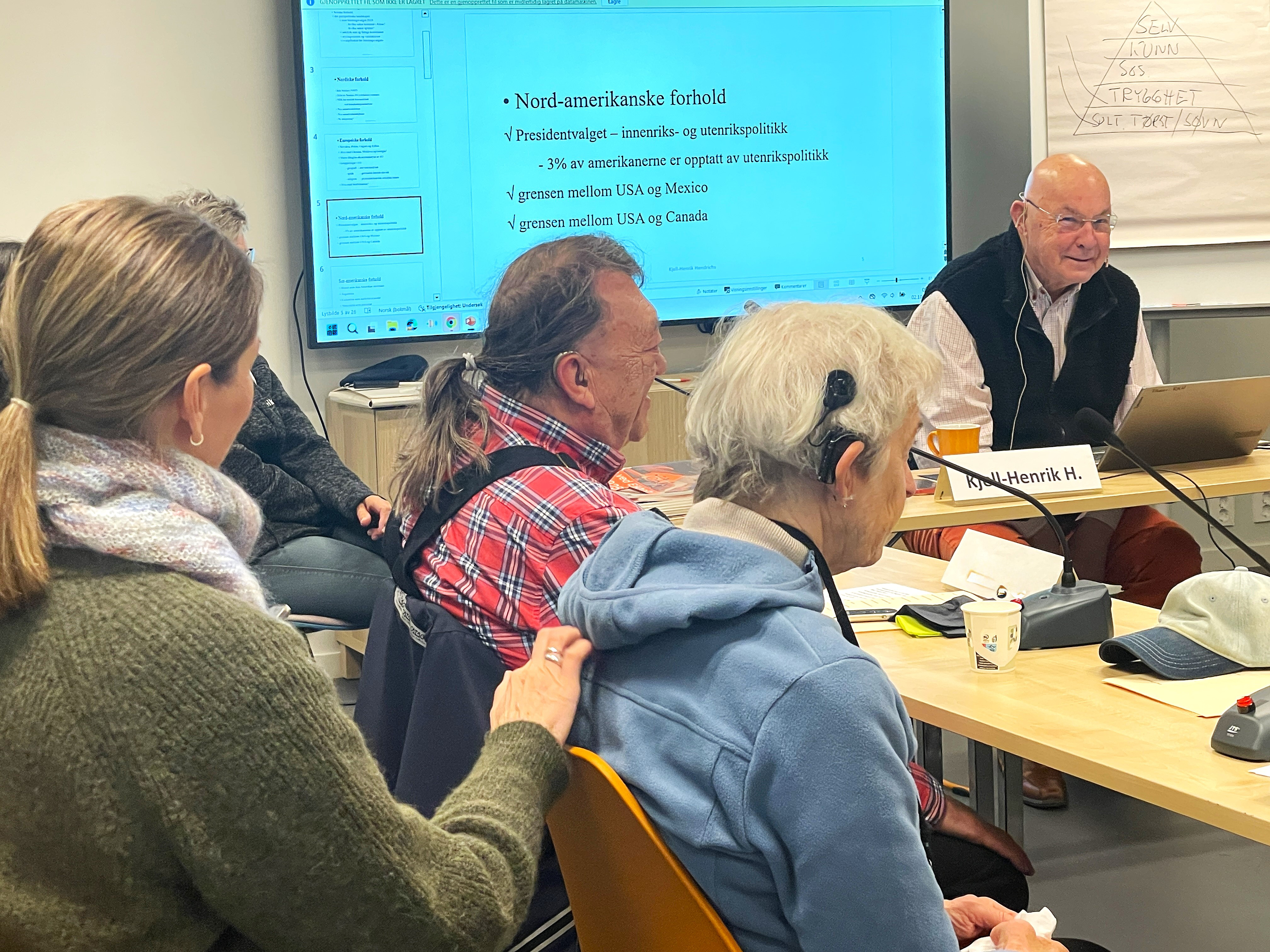
Throughout much of Eikholt's history, Kjell-Henrik Hendrichs has been a pillar in the dissemination of knowledge about Norway and the world through thematic courses. His communication has enriched and left its mark on the everyday lives of many people with combined visual and hearing impairments.
In this interview, we asked Kjell-Henrik a few questions, and with enthusiasm he took up his pen. Kjell-Henrik has the power of words, both spoken and written. Through his 35-year history, we also get to know the developments that have taken place in the dissemination of knowledge at Eikholt.
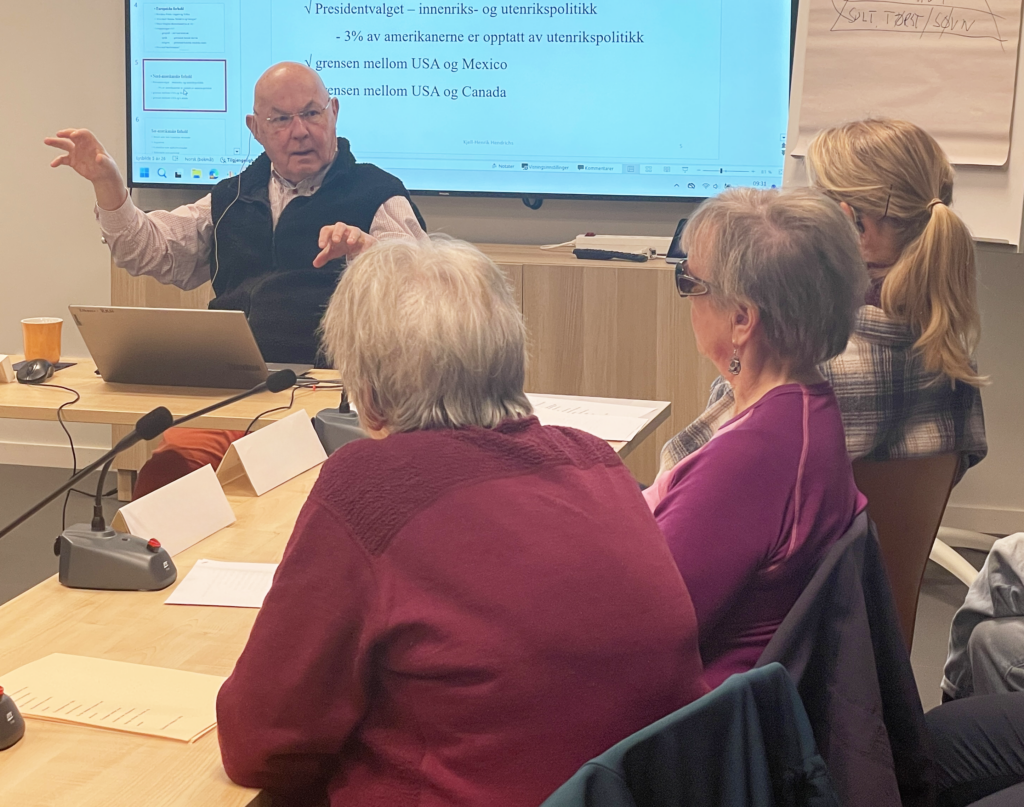
From working-class neighbourhoods to academia
For those who don't know you, can you tell us a little about who Kjell Henrik is?
- I was born in 1941 and grew up on the eastern edge of Oslo, in the Rodeløkka and Grünerløkka neighbourhoods. I lived at a time when for many people in working-class neighbourhoods - I come from working-class neighbourhoods - it was normal to go to primary school and then work. The city was divided in terms of education. On the west side, it was far more common to take the examen artium, as upper secondary school was then called. "I've had a long and winding, but very instructive, educational path involving music, sociology, deaconry, theology and philosophy. And I've been a very active organiser, including leading two professional organisations.
- But most of all, I've been an educator in a myriad of situations. I usually say that I "thrive very well in the auditorium", something that not all educators do. In addition, I've written around twenty books with a variety of content. I don't actually know how many articles I've written. And I've given a lot of lectures on the strangest topics. The strangest topics mean that I'm always curious about new things and take on challenges.
Evolution from resort to resource centre
We're wondering how you first got involved with Eikholt?
- Together with Elbjørg Liverød, head of Eikholt, Per Sanne had many big visions for Eikholt. Per saw the need to turn Eikholt into something other than a holiday resort.
- It started through my good old friend, Per Sanne, who was the director of Eikholt. I was a university lecturer at the time. Per Sanne told me that soon after the opening of Eikholt, he had many conversations with one of the truly insightful deafblind people, Reinholdt Robertsen. At the time, Robertsen was also chairman of Norwegian Association of the Deafblind (FNDB). Robertsen was a well-educated man who became deafblind as an adult. Through his conversation with Robertsen, Per realised that there was a pressing and urgent need to fill the profound lack of knowledge that characterised deafblind people from the mainstream education they received at the time. That's when Per Sanne contacted me, whom he knew as a colleague, teacher and friend.
- The origin of Eikholt was to be a meeting and holiday place for deafblind people. Both Elbjørg and Per quickly realised that many deafblind people had a significant lack of knowledge. After lengthy discussions, we realised that the most basic thing for deafblind people was to learn about Norwegian society, both past and present. We started with a week-long course on how our society is organised with municipalities, county councils and state administration. The course programme was called "Living in Norwegian society". Then came the many history courses on Norway from the Ice Age to the present day. The list of topics and the breadth of the programme is becoming considerably longer. And the wishes of the participants increased in length and breadth.
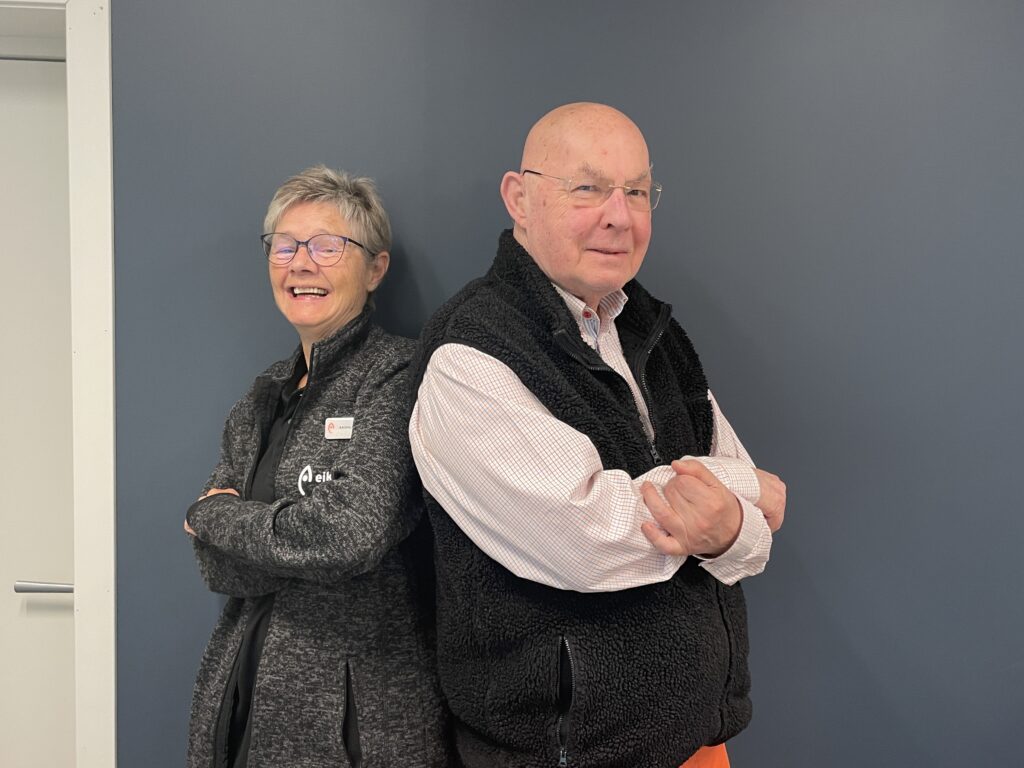
Focus on knowledge transfer
- It was a rocky start. What else could it be? "We started by guessing at what was relevant material. And gradually it was confirmed.
- In the beginning, I was unaccustomed to lecturing to deafblind people, and deafblind people were not familiar with me. Because of the tactile interpretation, I had to limit my use of words to a minimum. For me, it was a very big challenge. I have always been known to use a large vocabulary.
- There have been two factors of change in this 35-year project. One is the experience that the Eikholt employees and I have gained through trial and error. I personally say that I have developed my own Eikholt pedagogy. The second factor is that the participants in the courses are increasingly competent. Previously, it was frightening to realise how the participants had been grossly neglected by Norwegian schools.
- Today's participants are in a much better position than the first course participants. And many course participants have attended a number of themed courses over many years. That's why the content of the themed courses is far more advanced now than when we started 35 years ago.
It's good to have that sense of mastery, it's good for your mental health
Quote by Kari Kristine Engan, Course participant on Theme course
Kari Kristine Engan has participated in many of the Theme Courses, and we meet her at one of the latest Theme Courses with Kjell-Henrik. She tells us that he has a fantastic way of lecturing.
-"The most important thing about themed courses is to be able to participate in discussions in the network where we live. It's good to have that sense of mastery, it's good for your mental health," says Kari Kristine.
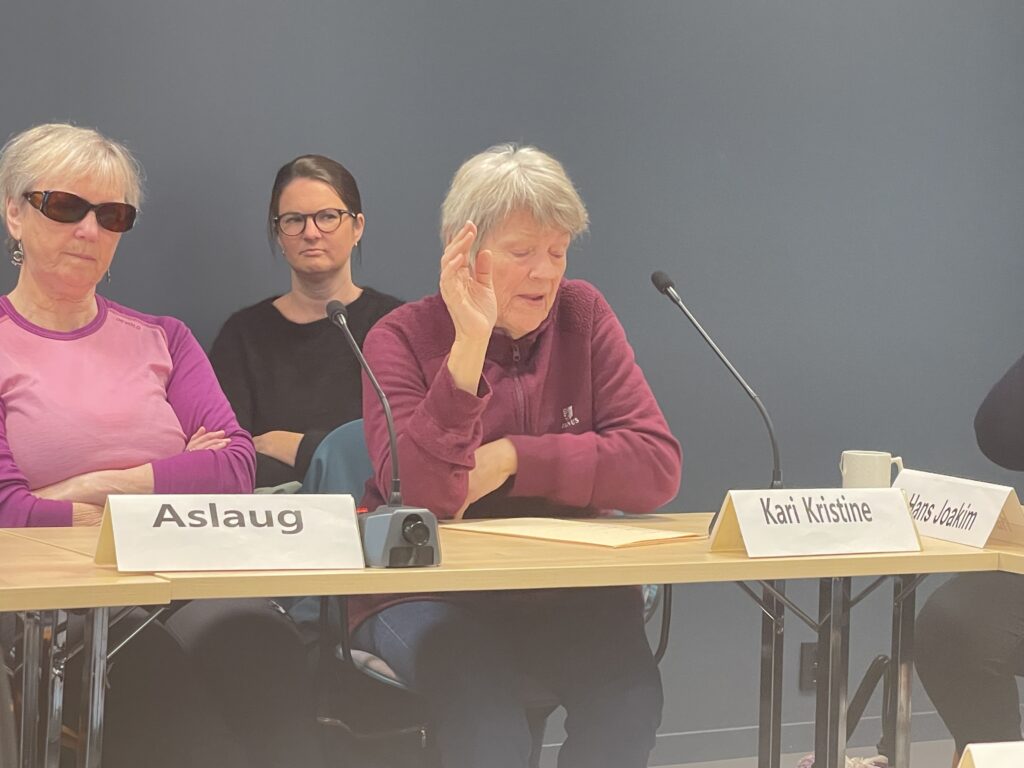
Johakim Lindgren, who has also attended some of the courses, adds:
- It's also nice to discuss and be able to talk about so many topics. It has given me more knowledge. There are no stupid questions on the themed courses.
There are no stupid questions in the themed courses
Quote by Johakim Lindgren, course participant at Temakurs
The joy of knowledge is something everyone should indulge in
- What I'm proud of is that we haven't stuck to one form and one set of topics. The latter is due to the fact that the participants' wishes have been taken into account through constant evaluations. The courses have been user-driven in the best sense of the word. In particular, we have come a long way when it comes to addressing socio-political and geopolitical topics and different political models and ways of thinking. We have covered all seven continents.
- I often tell friends and acquaintances that I don't think there are many adults who know more about Europe, European organisations, the EU and NATO than course participants in Eikholt. And we have prepared for all parliamentary and municipal elections over the past thirty years, and we have seen and analysed the election results afterwards. For the past twenty years, we have analysed the main figures for the expenditure and income sides of the national budget so that everyone knows the main items in the national budget and how it is created.
Pictures from Theme course
Do you have any special memorable moments from your years at Eikholt that you'd like to share?
- On our many excursions, some of the experiences have been great both for the participants and for me. A number of times on the way home, we've stopped by my house in Asker for a cup of coffee and my wife's delicious cakes. We've visited the Storting, the Supreme Court building, Oslo City Hall, the mosque in Åkebergveien, the synagogue in Bergstien in Oslo, St Olav's Catholic Church, the Vigeland grounds, Our Saviour's cemetery, the sculptures in the centre of Oslo, the Eidsvold building, Fossesholm and Kongsberg Church, to name but a few. And there are probably more than a hundred places we'd like to visit.
- Something I'll never forget was the joy of one of the course participants. "We talked about the Storting as it has developed from 1814 to the present day. It's my habit to ask questions in order to push forward an issue. So the question was: "Who chopped down the lions at Løvebakken?" One of the course participants was able to answer that question, and perhaps for the first time in his life, he was able to answer it correctly in a lesson. He was really proud as a rooster. I won't forget that. Experiencing the joy of knowledge is something everyone should indulge in.
Be part of the present and the future
What are your hopes and visions for the future of Eikholt?
- As the sole lecturer over all these years, I have seen how the expertise of course participants has increased. And this knowledge is relevant to society. For people with dual sensory loss, it is essential to receive relevant social information in addition to all the professional and technical help to compensate for the sensory loss. For me, the development of Eikholt has been like an adventure. And this has been created by people with vision - both managers and employees. Being in tune with the times and the future is alpha and omega for any business, including Eikholt.
Kjell-Henrik is accused of quoting in most situations, and one of his many quotes that is often cited is Friedrich Nietzsche (1844-1900). He puts it this way: "What doesn't break you down, builds you up!" By that he means to tell us that all growth is painful and meets resistance. But it builds us up, even though the burdens can be great. That's just as true whether you're 8 years old or 80 years old.
Future projects and lasting friendships
What do you dream of having more time for in the future?
- I have three or four book projects that I'm working on. Among other things, I'm going to write a special type of play for a meeting in Trondheim in 2030. And I read a lot every single day, and over a fairly wide area. What I really should spend more time on is physical training and exercise.
- "I've become very good friends with many of the course participants over the years. They have been and will continue to be a lasting pleasure.
- And I have to thank the managers at Eikholt who have had confidence in the work I've done over all these years. My hands and thoughts have been surprisingly free. Now the work must continue, with other forces and in other ways. That's what we call development.
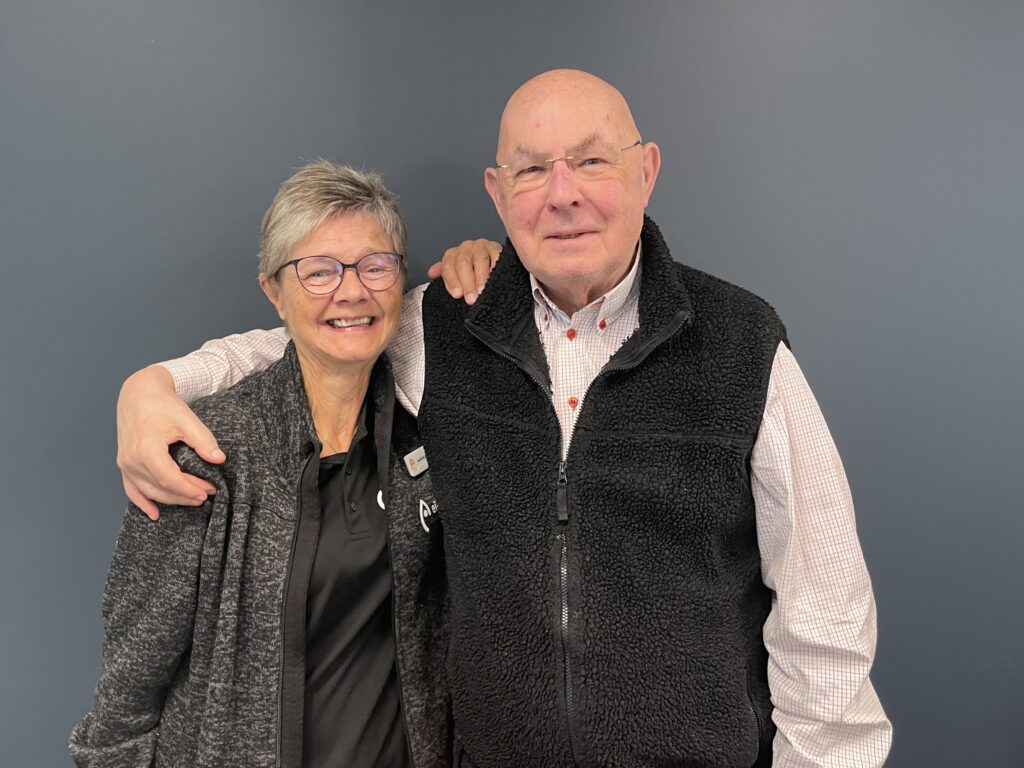
Eikholt would like to thank Kjell-Henrik for the knowledge he has given to everyone he has met, and the faithful commitment he has shown over many years.
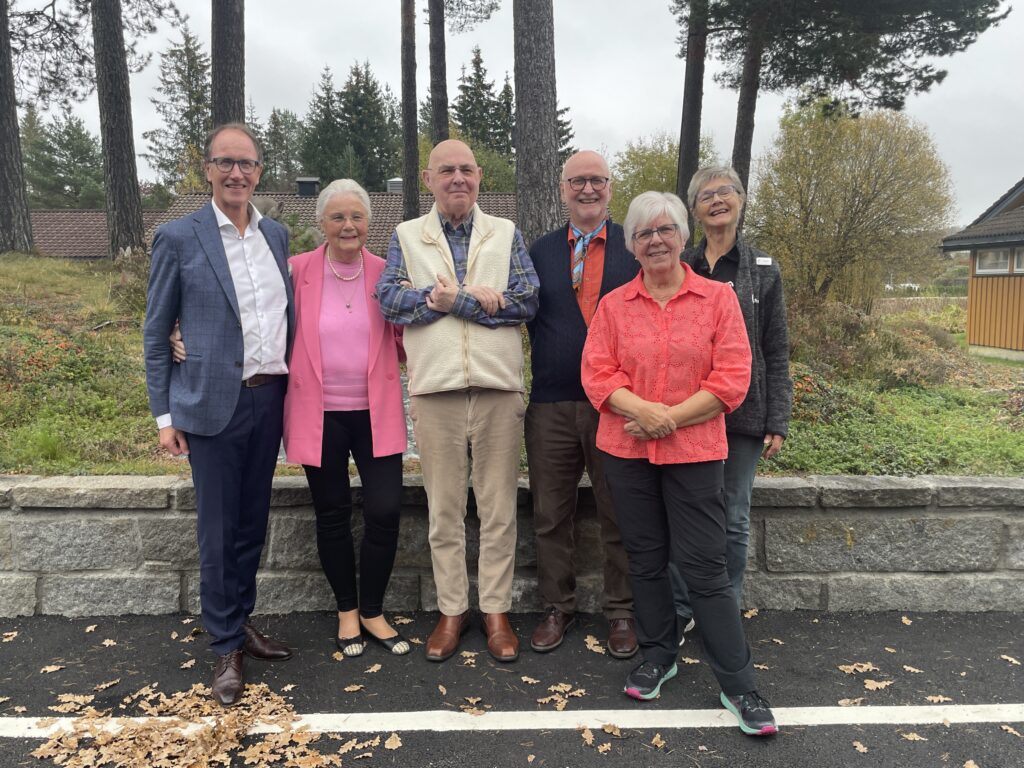
Want to read about Eikholt's courses?
The course catalogue consists of many courses with different themes. Among other things, a course on the election will be held in 2025.
Read the course catalogue here: Course catalogue 2025 - Eikholt
Find an overview of group courses here: Course - Eikholt
Do you have any questions?
Get in touch with us. You can find our contact details here: Contact us - Eikholt

